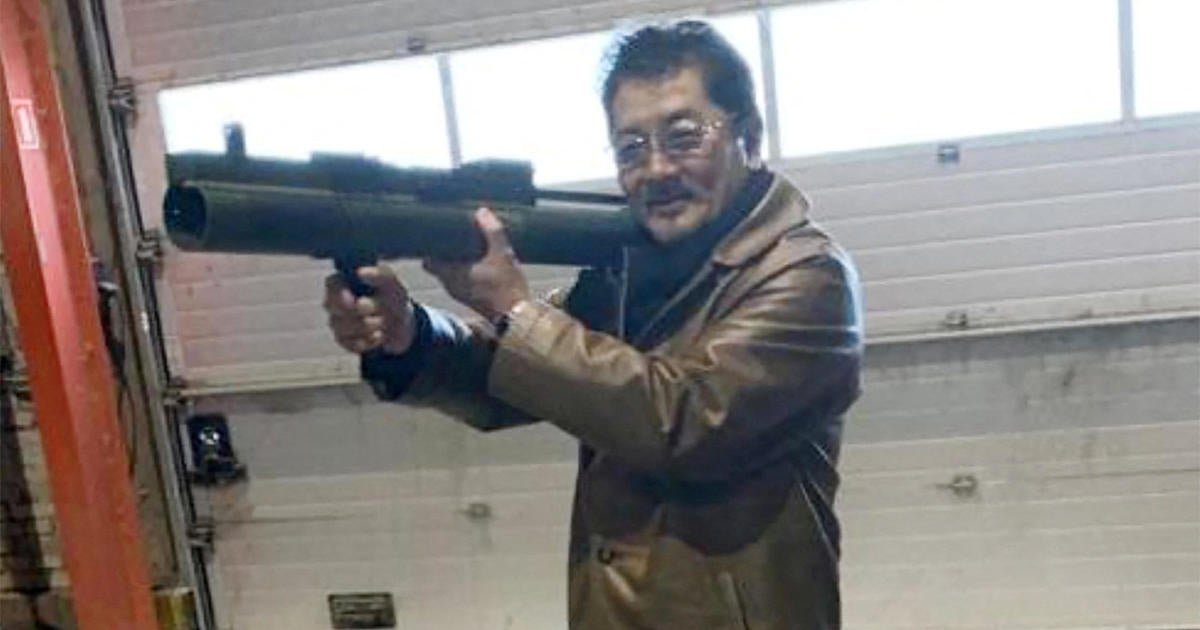
The alleged leader of a Japan-based crime syndicate pleaded guilty Wednesday to charges that he conspired to trade uranium and plutonium from Myanmar in the belief that Iran would use it for nuclear weapons.
Takeshi Ebisawa, 60, from Japan, pleaded guilty in federal court in Manhattan on gun and drug trafficking charges that carry a mandatory sentence of at least 10 years in prison and the possibility of life behind bars. The sentencing is scheduled for April 9.
Prosecutors say Ebisawa did not know that in 2021 and 2022 he was communicating with a confidential source for the Drug Enforcement Administration along with an associate of the source, posing as an Iranian general. Ebisawa was arrested in April 2022 in Manhattan during a DEA operation.
DEA Administrator Anne Milgram said in a statement that the prosecution demonstrated the DEA’s “unparalleled ability to dismantle the world’s most dangerous criminal networks.”
U.S. Magistrate Judge/Southern District of New York/Handbook via REUTERS
She said the investigation “revealed the shocking depths of international organized crime from the trafficking of nuclear materials to the encouragement of narcotics trafficking and the arming of violent rebels”.
Acting U.S. Attorney Edward Y. Kim said Ebisawa admitted to “brazenly trafficking nuclear material, including weapons-grade plutonium, from Burma.”
“At the same time, he was working to ship vast quantities of heroin and methamphetamine to the United States in exchange for heavy weapons such as surface-to-air missiles to be used on the battlefields of Burma,” he added.
Court documents say Ebisawa – who US prosecutors say is the leader of a notorious Japanese group Yakuza mob — told a DEA confidential source in 2020 that he had access to a large amount of nuclear material that he wanted to sell. To back up his claim, he sent the source photos showing rocky substances with Geiger counters measuring radiation, claiming they contained thorium and uranium, the newspaper said.
The nuclear material came from an unidentified leader of an “ethnic rebel group” in Myanmar that mined the country’s uranium, prosecutors said. Ebisawa suggested that the leader sell uranium through him to finance the purchase of weapons from the general, according to court documents.
Prosecutors said samples of the alleged nuclear materials were obtained and a US federal laboratory found they contained uranium, thorium and plutonium, and that the “isotopic composition of plutonium” was weapons-grade, meaning enough would be suitable for use in a nuclear weapon. .
Ministry of Justice
Last year, prosecutors released the photos of alleged nuclear materials allegedly sent by Ebisawa.
Prosecutors also allege that Ebisawa conspired to sell 500 kilograms of methamphetamine and 500 kilograms of heroin to an undercover agent who distributed in New York. He also allegedly worked to launder $100,000 in alleged narcotics proceeds from the US to Japan.
“As he admitted in federal court today, Takeshi Ebisawa brazenly smuggled nuclear material, including weapons-grade plutonium, from Burma,” said Acting US Attorney Edward Y. Kim for the Southern District of New York. “At the same time, he worked to ship vast amounts of heroin and methamphetamine to the United States in exchange for heavy weapons such as surface-to-air missiles to be used on the battlefields of Burma and laundered what he believed to be drug money from New York to Tokyo.”
An email was sent to Ebisawa’s lawyers seeking comment.
Membership in the Yakuza down to 20,400 in 2023, one-third of what it was two decades ago, according to the National Police Agency. The decline is largely attributed to legislation passed to fight organized crime, which includes measures such as banning members of certain groups from opening bank accounts, renting apartments, buying mobile phones or insurance.










